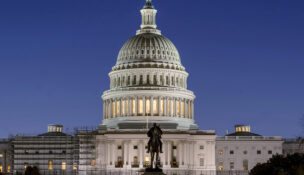Progressives argue ALEC violates Open Meeting Law in lawsuit
Howard Fischer, Capitol Media Services//December 4, 2019//[read_meter]
Progressives argue ALEC violates Open Meeting Law in lawsuit
Howard Fischer, Capitol Media Services//December 4, 2019//[read_meter]
A coalition of rights groups filed suit Wednesday, accusing state lawmakers of illegally meeting behind closed doors with special interests in a way that violates Arizona’s Open Meeting Law. Attorneys...
No tags for this post.

















